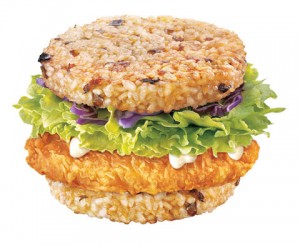McDonald’s is considering to integrate more organic produce in order to increase its decreasing growth and attract customers away from its competitors (Patton).
A major portion of the developed world’s general public have recently gone under a lifestyle shift to supporting the consumption of all organic natural foods. Organic food usually means non-GMO, pesticide , additive free and many other specifications. Now, many businesses have appealed to this lifestyle with their products and brand image because they truly believe in the authenticity of this lifestyle and every part of their operations, from their human resource management to their supply chain management supports the belief.
However, it is becoming more apparent that some businesses will try to jump on the band wagon of organic food and exploit the lifestyle . What is so disappointing about this consideration is that it is apparent that McDonald’s is not fully convinced that organic food is the only way to go.
The value proposition of McDonald’s is that it provides fast service for a low price. Unfortunately, organic produce is ultimately more expensive that non-organic produce. Also suppliers of organic produce is much less common. These implications all translate into higher costs of supply. If overall costs are increased with the purchase of organic supplies, costs will obviously have to be decreased elsewhere. Which leads to the question of where that cost cut will have to come from. Will the other non-organic supplies come from even more low quality, but low price suppliers? McDonald’s is notorious for using suppliers that do not fully adhere to local and national food and health safety standards.
The article mentions Chipotle as its main competitor that uses organic food that tastes delicious and healthy as it’s value proposition. Chipotle has a shared value with it’s customers . The term shared value will imply that the customers and business values the proposition both equally. However, to devout consumers of organic food, McDonald’s looks unconvincing. A much higher percentage of the McDonald’s consumer base has complete disregard to whether their food is organic or not. The bottom line is, including more organic food in it’s menu to boost it’s stagnant growth is a strategy that is purely for profit and will not appeal to customers who are emotionally invested in this certain lifestyle.
Patton, Leslie. “McDonald’s May Sell More Organic Foods to Boost Sales.”Bloomberg.com. Bloomberg, 22 Oct. 2014. Web. 02 Nov. 2014.
